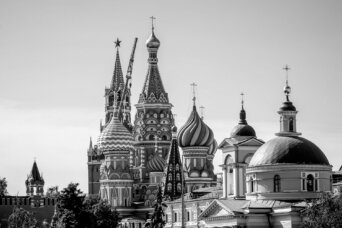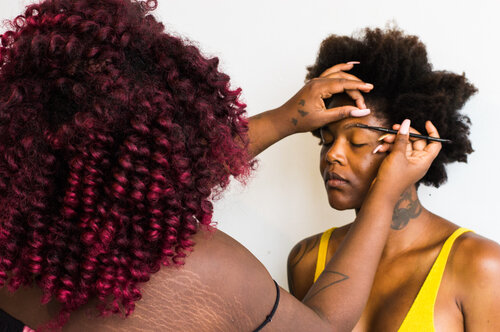- About
- Topics
- Picks
- Audio
- Story
- In-Depth
- Opinion
- News
- Donate
- Signup for our newsletterOur Editors' Best Picks.Send
Read, Debate: Engage.
| topic: | Racism |
|---|---|
| located: | Russia |
| editor: | Andrew Getto |
When thinking of populations of African origin, Russia is perhaps one of the last places on Earth to come to mind; yet, it is home to a population of over 70,000 black people. Like in many other countries, black people in Russia face discrimination, but the context is different than, for example, in the United States. As part of Black History Month, we take a look at the often uneasy lives of Russia’s black population.
Unlike many Western countries, Russia never oppressed black people as a singled-out group: rather, oppression was universal. Up until the mid-19th century, most of the Russian population were de-facto slaves, with no freedom over their bodies or fates. One of the few Russian-Africans that we know a lot about was a free man named Abram Hannibal; the great-grandfather of Russia’s most famous poet Alexander Pushkin ended up in the snowy land by a bizarre chain of events and became the godson and life-long friend of Peter the Great.
Of course, if Russia had participated in the African slave trade, it is not hard to imagine that treatment of black people would be very different. Like fellow powerful European nations, Russia had a typical white supremacist attitude, putting white Christian (noble) men at the top of its social hierarchy. In the early 20th century, there was a “Somali village” in St. Petersburg where Africans, wearing hay skirts, staged performances next to a rollercoaster - a spectacle that was almost equivalent to a “human zoo.”
This attitude changed after the 1917 revolution and the proclaimed friendship of the peoples. The Soviet propaganda trumpeted cases like the one of black engineer Robert Robinson, who did not face racial discrimination there, unlike in the US. The wave of decolonisation brought thousands of Africans to study in the Soviet Union, leading to the first generation of mixed-race children.
The fall of the Soviet Union tore the illusion of an internationalist utopia. The 1990’s and 2000’s were a rampant age for racists, who targeted everyone of a different ethnicity, and black people in particular. Nevertheless, Africans continued to migrate to metropolitan Russian cities in search of work or to escape from war and hunger, despite the impossibility of receiving a refugee status in the country.
Thousands of people, particularly from Nigeria, Cameroon and Central Africa, are deceptively lured to Russia for false jobs promised by fraudsters, only to arrive in the country and be left without means. The language barrier and prejudice often make it impossible for them to find any better opportunity than handing out fliers on the street for as little as $2 per hour. It is not uncommon for African women in Russia to turn to sex work.
To a different extent, dealing with prejudice is challenging for black and mixed-race people born and raised in Russia and integrated into society. According to them, the biggest problem is casual racism: taxi drivers leaving as soon as they see their prospective passengers and bartenders refusing to serve them for no apparent reason. All my life I have watched Russian people routinely refer to black people with pejorative terms - not because of blatant, aggressive racism, but rather due to ignorance and a complete lack of awareness about global Black history.
Immigration of Africans to Russia will continue and increase, therefore it is the responsibility of the government and society to facilitate their integration. The complex process must start in schools (which currently avoid race issues altogether) and continue through an improved inclusion of Africans in the Russian labour market, media and politics. Otherwise, Russia will propagate the marginalisation of future immigrants, solely due to their race.
Photo by Artem Beliaikin

